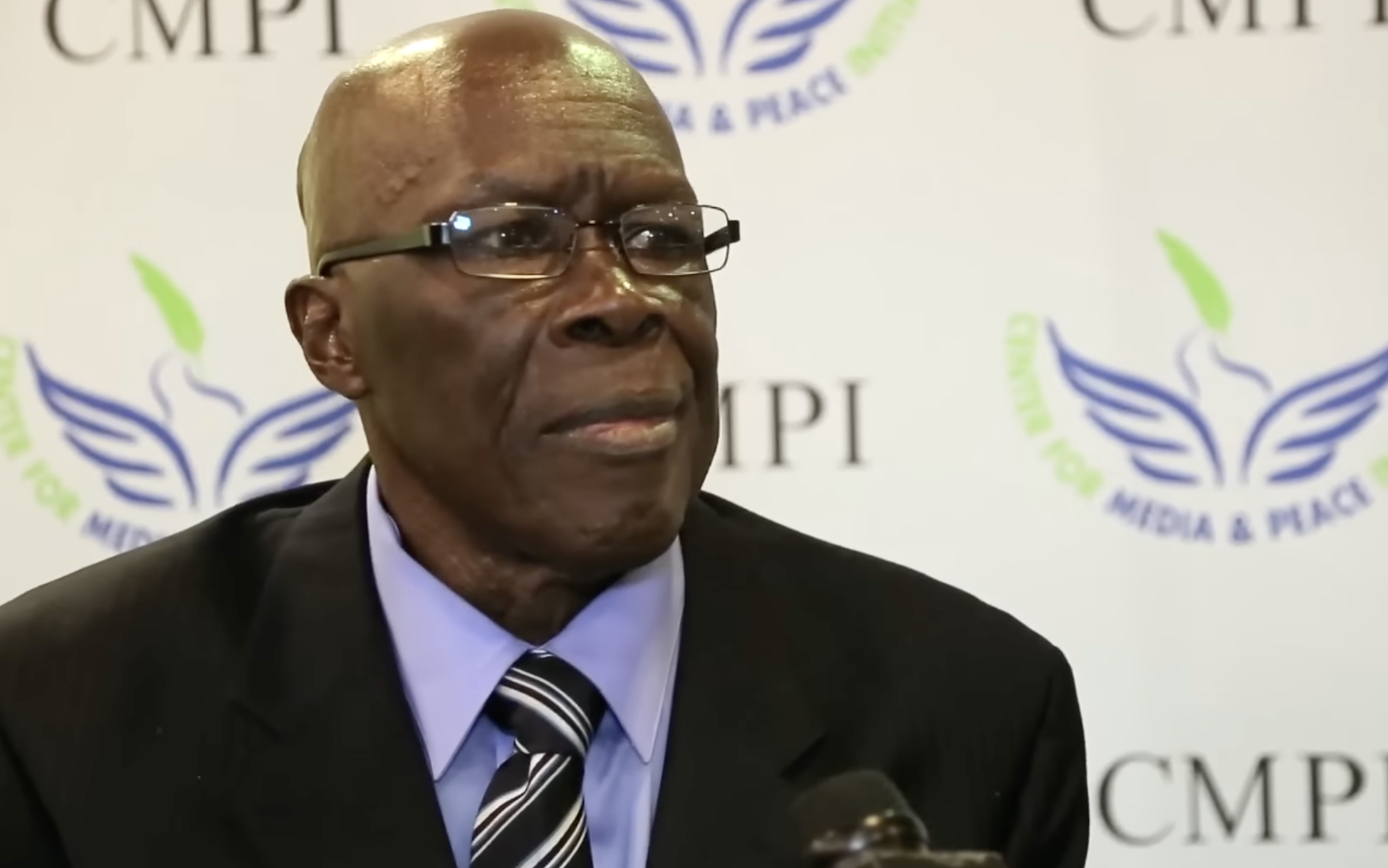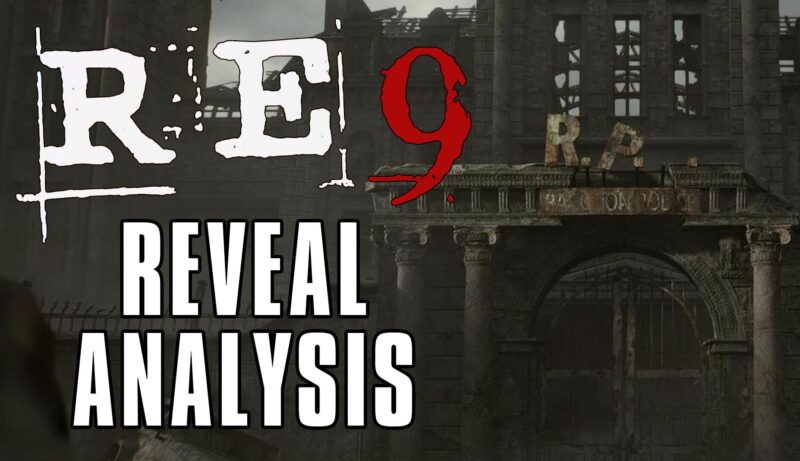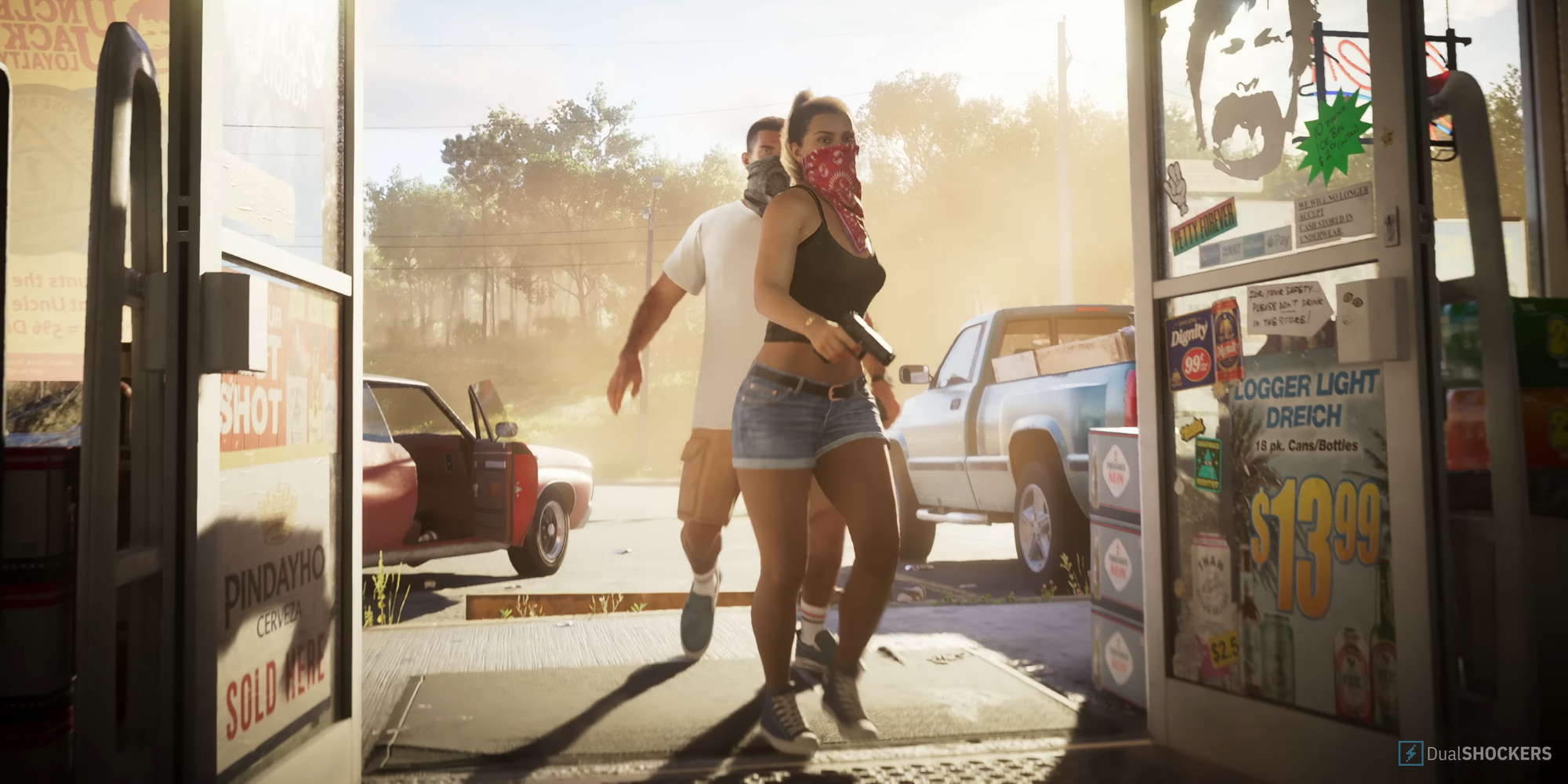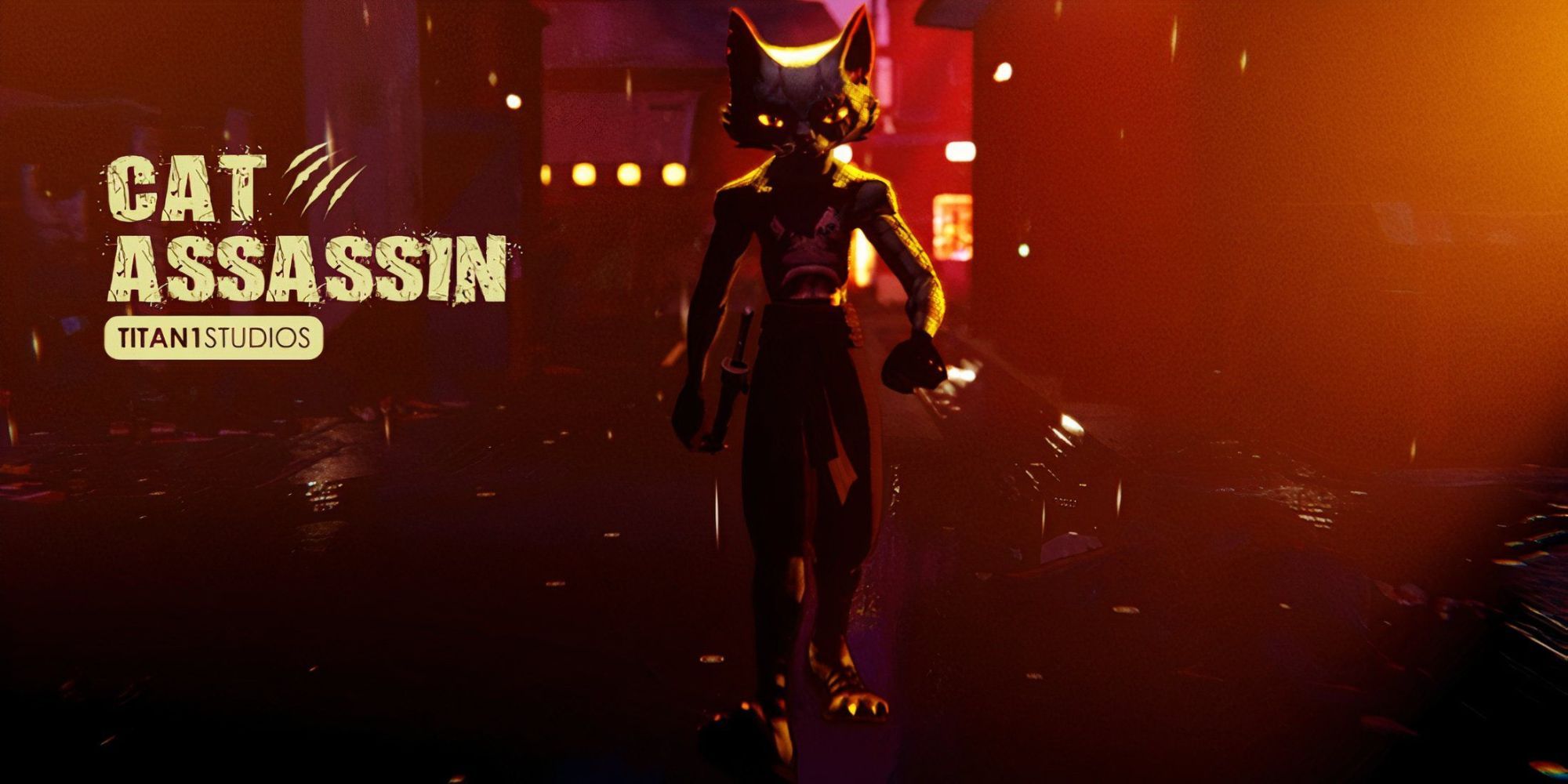APACALDA: "The highest level of respect towards another human being is radical honesty" | Interview | The Line of Best Fit
Cassandra Angheluta recounts how just recently she was listening to childhood tapes of her and her sister singing by the piano while their father played and called out songs from The Little Mermaid or Beetlejuice for them to perform.
Brought up by Romanian-immigrant parents in the Notre-Dame-De-Grâce neighbourhood in Montreal, Angheluta was encouraged by her parents to use music as an outlet. After a stint as the clarinet player in a neighbourhood band, she began settling into her musical persona after being sent to an arts high school by her parents – a decision she resisted at the time and is now ever-grateful to them for.
She zeroed in on listening to what she describes as “classic teenager music” – in other words, Nirvana, Avril Lavigne, Blink-182, Misfits, and Guns N’ Roses – from the influence of her father. She includes an additional defence: “The Spice Girls and Backstreet Boys – sorry but they’re amazing, no matter what anyone says.”
Now she’s the complex mix of a dreamy, alternative, electro-pop artist, but before that, Angheluta was the girl in her room who was unintentionally memorising the lyrics of an artist’s entire repertoire and learning bass lines by ear. Being a self-taught musician is neither the easiest nor most assuring path. There isn’t anyone to train and encourage you, there isn’t a guiding light helping you become the musical version of yourself that you want to be, but perhaps the city of Montreal could be described as the saving grace.
“The Montreal music scene, fuck, I love it so much. I remember looking at it from an outsider’s point of view before I started taking music seriously and thinking, ‘Oh my god all of these people are so cool.’” Angheluta describes an underlying cohesiveness to the music scene in Montreal that feeds the city. It’s built by people who show up authentically, without mimicking each other but rather allowing their different specialities to nurture each other’s growth.
“It’s consistently inspiring,” she says. “You can find R&B to grunge to rap, Anglo to Francophone – there’s so much variety and I think that’s due to the melting pot of cultures that is here and present.”
Before she was APACALDA – which means “warm water” in Romanian – Angheluta was “Cassie Baby,” performing exclusively covers. That changed the night of her EP performance in 2019 where she was set to perform original music for the first time. She wiped “Cassie Baby” off the chalk board and pushed forward. “I’m a very honest person and I feel like I’m pretty consistent in my personality so I don’t feel like it’s an alter ego. I feel like it’s really me but just extra. And I’m already extra,” she laughs.
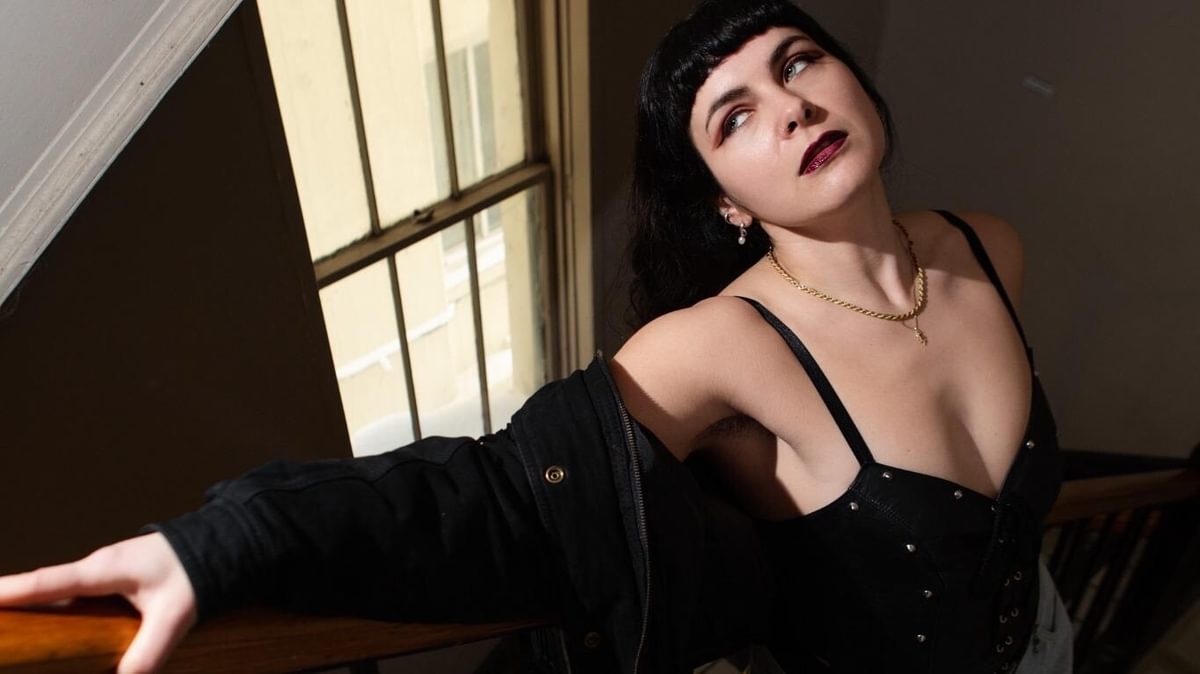
She pinpoints for me the exact moment where things started to fall into place. In that same year, she met Samuel Woywitka, an integral person to her and to the creation of her debut album There’s a Shadow in my Room and it isn’t Mine. With four unreleased singles, he gifted her a refurbished 2011 MacBook Pro with a pivotal addition: Ableton. As COVID came into play, Angheluta took advantage. “I felt like the music industry was changing so deeply and so rapidly that it gave me the opportunity to catch up,” she says.
As she dove head first into her music from a new lens, the realities of the sometimes year(s)-long gestation period of musical projects came hard and fast. By this point, she had released those four aforementioned singles and had decided to pursue writing a full length album. “I remember being overwhelmed at the idea of how much work everything is, how long it’s going to take, and the strategy that comes into play with a music career,” she explains.
Alongside Woywitka, Angheluta continued to turn those who inspired her into her contemporaries, working with bassist and composer Mishka Stein (Patrick Watson, TEKE::TEKE::) who produced her album, as well as Christophe Lamarche and Tommy Crane. “Mishka has pushed me on a lot of different points,” she says. “I’d say probably 90% of the time he’d ask me to try something, I’d be like, ‘That doesn’t feel natural to me but I’ll try it’ and I ended up going with it.”
Montreal’s more-than-a-label Mothland – an extended surrogate family of creatives, housing bands like Hot Garbage and La Securité – is also part of her world. After initially meeting through Woywitka, Angheluta cultivated a relationship with Mothland and was booked for their Tavern Tour in February of this year and as one of their opening acts. “They’re just doing something so special, so I’ve always been really drawn to them,” she says.
While the support was there from those in the Montreal music scene, what has additionally helped solidify Angheluta’s path is institutional support. Applying for and receiving grants within Quebec and wider Canada is a level of endorsement that few are lucky enough to receive and therefore realise the power of, until it becomes their reality. The validity that comes from institutional recognition is an underestimated antidote to self-doubt, and another is perhaps radical honesty.
Radical honesty is the throughline of Angheluta’s debut album. The concept of being “brutally honest” doesn’t appeal to her, citing that the end goal of being honest with someone is for them to receive your message, not for you to get something off your chest without closing the circle. “I think that for me the highest level of respect towards another human being is radical honesty.”
Angheluta describes growing up as a Libra with a mother and a sister who were both Aries – the first sign of the zodiac typically known for their passion and hot temper. “My mom is a very typical Eastern European woman, all her expressions are on her face. She is so blunt, my sister is next level blunt, but I’m a very sensitive emo girl and I think that looking back now, I was meant to grow up with these two women to teach me how to stand my ground and not let people walk all over me.”
The authenticity angle – which sounds like an oxymoron – is something people instinctively respond to, but it’s not necessarily an “angle” as opposed to not knowing another way to be. Effectively it’s what people are craving in both immediate and distant connections. When it comes to her debut album, this thread of radical honesty relating to jealousy, desire, and pain is palpable. I ask how intrinsic that was, which Angheluta explains was a natural progression.
“There’s no such thing as TMI in my opinion. I love the nitty gritty details and I think it’s what brings us closer as humans. We’re all fucked up and going through things that we’re all ashamed of or carrying and not talking about because we don’t wanna feel like a burden – we don’t wanna come off as tainted or whatever it may be – but I love going to that level of ‘here’s everything, you can decide what to do with that information.’”



